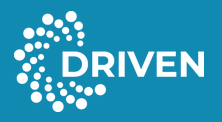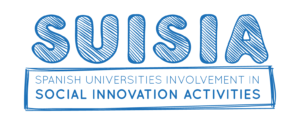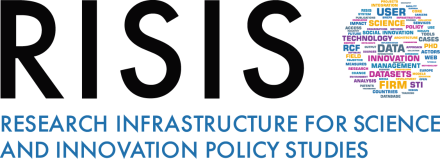Projects
Current major projects. See comprehensive list.
Impulsores y barreras para el éxito de la transición energética descentralizada: la importancia del territorio, los adoptantes y la madurez tecnológica
The aim of this research is to analyze the drivers and barriers associated to the adoption of decentralized Renewable Energy Technologies (RET). Decentralized RET include rooftop solar PV, consumer batteries, electric vehicles, and energy management software (among others). The economics of these technologies allows for the installation of energy infrastructure in smaller capacities without losing competitiveness. Although infrastructure deployments may have larger initial costs, the advantages they provide overcome costs.
Innovative models for sustainable future of Mediterranean pastoral systems
PASTINNOVA is a 3-year project that focuses on the sustainability of Mediterranean pastoralism. The project aspires to deliver innovations and business models that pertain to the particularities of pastoral systems in the Mediterranean. The project targets Mediterranean pastoral farms and their value chains (VCP) with a focus on smallholders maintaining ‘pastoral identities’ by making sustainable use of local resources at risk of abandonment and providing examples of circular economy for centuries and an alternative to dominant intensive livestock production systems.
European long-term ecosystem, critical zone and socio-ecological systems research infrastructure PLUS (eLTER PLUS)
Progress in understanding, managing and securing current and future ecosystem functions and services is challenged by fragmented and dispersed ecosystem research, operated using narrow disciplinary perspectives that prevent a holistic understanding of complex eco- and socio-ecological systems. The emerging European Long-Term Ecosystem, critical zone and socio-ecological systems Research Infrastructure (eLTER RI) was evaluated by the European Strategy Forum on Research Infrastructures (ESFRI) as having high potential for closing this gap in the European RI landscape.
Policies for Smart Specialisation (POLISS)
Smart Specialisation is a successful innovation policy concept which has become a cornerstone of the European cohesion policy and also addresses several of the Sustainable Development Goals. However, the early implementation of SmartSpec policies has raised concerns among scholars and policy makers, who have pointed to a number of gaps in its conceptualisation, design and implementation. POLISS (“Policies for Smart Specialisation”) will tackle these gaps with the aim of making the design, implementation and evaluation of Smart Spec policies more effective in Europe.
Past projects
Monitoring and Assessment Gender Gap In Events (MAGGIE)
In this project, we propose the development of a tool based on performance indicators, which will allow monitoring and evaluating gender roles and inequalities in European high‐level policy events. This tool will act as a traffic light. It will indicate red when the event has a bad behavior level with respect to gender issues in participation, amber when it is correct but could be improved and green when it has a good behavior level. The event achieving a green will be considered as a best practice and could be granted as a Gender Seal.
Quality of business and societal knowledge coproduction with universities: The Great and the COVID-19 Recessions – La calidad de la coproducción de conocimiento empresarial y societal con universidades: la Gran Recesión y la Recesión del COVID-19
Companies develop quality research to boost their innovation, be more competitive and attract qualified researchers. However, the quality of companies' scientific results can be affected by changes in the business cycle. The co-production of scientific knowledge with universities tends to improve the quality of business research, but to the point of offsetting the worst moments of growth cycles? Similarly, the development of quality technology in companies, in particular with universities, may vary in expansions and crises.
Propuesta de indicadores para impulsar el diseño de una política orientada al desarrollo de Investigación e Innovación Responsable en España. INPERRI
En España frente al reto de establecer políticas científicas que aborden de forma integral la Investigación e Innovación Responsables (RRI) consideramos que es necesario realizar un análisis de las características específicas del sistema español e integrar el conocimiento previo en gestión de organizaciones y evaluación de los impactos (de organizaciones, programas y proyectos) para establecer las herramientas de gestión y medición más atingentes a nuestra realidad.
El presente proyecto tiene como objetivos principales los siguientes:
Implicación de las Universidades Españolas en Actividades de Innovación Social (SUISIA)
Social Innovation is considered relevant to face the "great challenges" faced by contemporary societies. Social innovation requires a commitment to solving social problems, involves different actors and interactions, and combines diverse knowledge to introduce solutions with manageable, if not predictable, long-term results. Universities are rich in resources that can be mobilized to contribute to solving social problems if they are actively involved in social innovation processes.
Students 4 Change: Social Entrepreneurship in Academia. S4C
The recent downturn that has affected the life of many Latin American countries has reshaped its expectations and possibilities of improvement. In this context, the university regains the leading role it once had. Society considers the university as the path to generate innovative strategies that can contribute to social mobility and attend to structural problems.
European Research Infrastructure for Science, technology and Innovation policy Studies 2 (RISIS 2)
The European Research infrastructure for science, technology and innovation policy studies (RISIS2) aims at building a data and services infrastructure supporting the development of a new generation of analyses and indicators. To develop a deeper understanding of knowledge dynamics and policy relevant evidence, the project goes beyond established quantitative indicators, developing positioning indicators, which take into account critical features of knowledge dynamics i.e. the importance of asymmetries in producers, in places and in themes.
EXTRA. Scientific excellence and knowledge transfer, two riding together? organisational factors, individual antecedents and societal impact.
Investigar las condiciones que dan lugar a que los científicos más destacados realicen investigación de alta calidad científica a la vez que asumen el compromiso de transferir sus conocimientos a otros agentes sociales.
Fostering Competencies Development in Belarusian Higher Education. FOSTERC
The main aim of FOSTERC is to support the modernisation of governance, management and functioning of Belarusian Higher Education Institutions.
For that, FOSTERC will:
- Provide indicators for conceptualize learning outcomes in terms of competencies (knowledge, skills and attitudes)
- Upgrade and improve innovative training methods and the development of pedagogical creativity
- Equip Belarusian Higher Education Institutions with the necessary information tool to facilitate the implementation of internal and external quality assurance systems/guidelines













